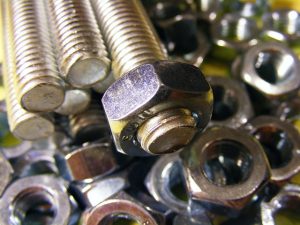
Not all screws are the same. While some of them are designed to create their own hole when driven into objects, others are designed for use in existing holes. Machine screws fall under the latter category. Like all screws, they feature a threaded shank and a head. Machine screws, however, are designed for use in existing holes. Below are several things you should check when choosing machine screws.
#1) The Head
Machine screws are available in different head types. The head, of course, is the uppermost part of a machine screw. It’s essentially an integrated cap that sits atop the shank. You can find machine screws in different head types. Some of them have a countersunk head, whereas others have a non-countersunk head.
Countersunk heads are those that sink into the objects with which they are used. Machine screws with a countersunk head will essentially remain flush with the objects. Non-countersunk heads, such as pan heads, protrude out of the objects with which they are used. Machine screws with a non-countersunk head feature a fatter, taller head.
#2) Fully vs Partially Threaded Shank
Some machine screws have a fully threaded shank. Others have a partially threaded shank. A fully threaded shank means the rod-like shank is completely covered in threading. In comparison, a partially threaded shank only has threading covering about three-quarters of its body.
What’s the purpose of a partially threaded shank exactly? Machine screws with a partially threaded shank offer greater resistance to loosening, especially when used in conjunction with wooden objects. If you’re going to buy machine screws, you should consider whether they have a fully or partially threaded shank.
#3) Find the Thread Size
Machine screws are available in different thread sizes as well. When choosing machine screws, pay attention to the thread size. Machine screws are designed for use in existing holes. Therefore, you’ll need to choose machine screws in a thread size that matches the hole or holes in which you plan to insert them.
Thread sizes are typically represented by two numbers. The first number indicates the diameter of the threads. The second number indicates the number of threads per inch. A 10-32 machine screw, for instance, has a size 10 thread diameter and 32 threads per inch.
#4) Corrosion-Resistant Material
You should choose machine screws made of a corrosion-resistant material. When exposed to moisture, some fasteners may oxidize or corrode. Corrosion, of course, can eat through the fastener’s threads while jeopardizing the integrity of the objects with which it’s used.
There are machine screws available in corrosion-resistant materials. Some of them are made of stainless steel or zinc-plated steel. Both of these materials are strong, durable and resistant to corrosion.
